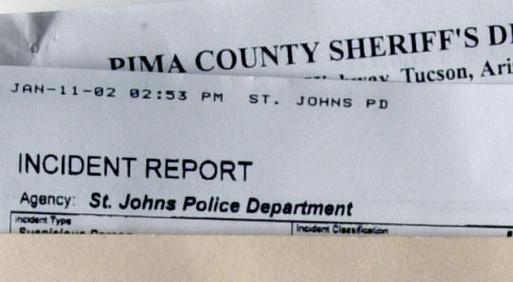PHOENIX — A state senator is trying again to make it easier for public officials to deny requests for records they believe are “unduly burdensome or harassing.”
The proposal by Sen. John Kavanagh, R-Fountain Hills, leaves in place existing requirements for records to be open to public inspection, and spells out that those who are denied access can sue and recover their legal fees.
But SB 1019 adds a requirement that the records sought must be identified with “reasonable particularity.”
Potentially more significant, it provides public officials with the ability to claim that “the request for access to public records is unduly burdensome or harassing.”
Kavanagh acknowledged that his legislation provides no definition for either term.
But the senator said that does not make it a flawed measure.
“Just like when the personal privacy trumps the public’s right to know is vague,” he said. “But we live with that and we allow judges to make that determination.”
He said it’s a matter of common sense, saying some people “take pleasure out of making the government do all this work and then not even showing up to look at it.”
The measure traces its roots to problems in several rural areas.
Steven Moore, the Yuma city attorney, said last year that two individuals make 70 percent of all the public-records requests. One, Moore said, made 46 requests in 44 business days, even requesting copies of all his prior requests.
And Rep. David Stevens, R-Sierra Vista, made his own stab at changing the law after saying local officials were getting requests that take up to five days to research and fill, with some agencies having to hire additional staffers to comply.
Dan Barr, attorney for the First Amendment Coalition, said he understands the desire to deal with that kind of problem.
“Everyone agrees in the extreme instance where you have some gadfly repeatedly making vague and large public-records requests — and in some cases not even picking up the records — at that point the public body can say ‘We shouldn’t have to comply with these requests anymore,’” he said.
But Barr said he reads existing law to already allow public agencies to get a court order for such “extreme instances.”
He said he fears that the proposed language could be abused.
“It gives the public body a way to deny the request if they don’t want to comply with the request from a reporter or a criminal defense attorney or a private investigator because they feel it’s harassing them,” Barr said. He said that provides cover for officials who would rather not reveal information that could be controversial or embarrassing.
And once a public official raises the excuse of burdensome or harassing, it puts the burden on the person requesting the records to hire an attorney and go to court to get the documents.
Kavanagh said he understands the concerns and would consider any proposals to tighten up the language.
“I would certainly not want to make harassing some policy position to be grounds for denial,” he said.
“In fact, if it’s a controversial policy (at the heart of the request), all the more reason to have public inspection.”
Kavanagh shepherded legislation with the same language out of the Senate last year on a 22-7 vote, but ran into opposition in the House, where members voted 40-19 to kill the measure amid concerns it could be abused.






